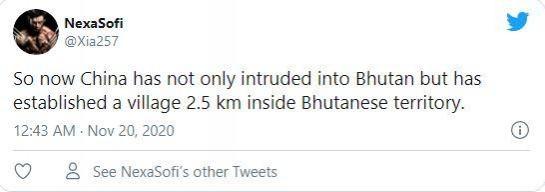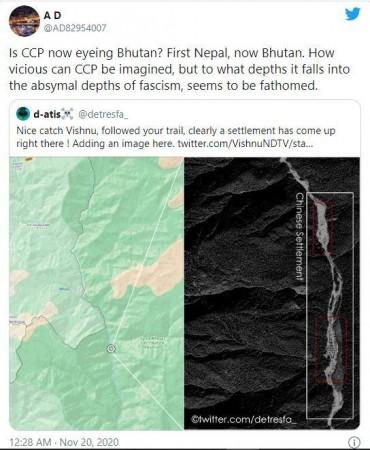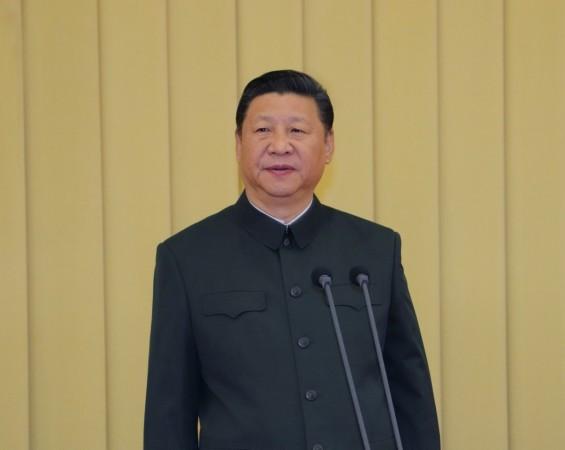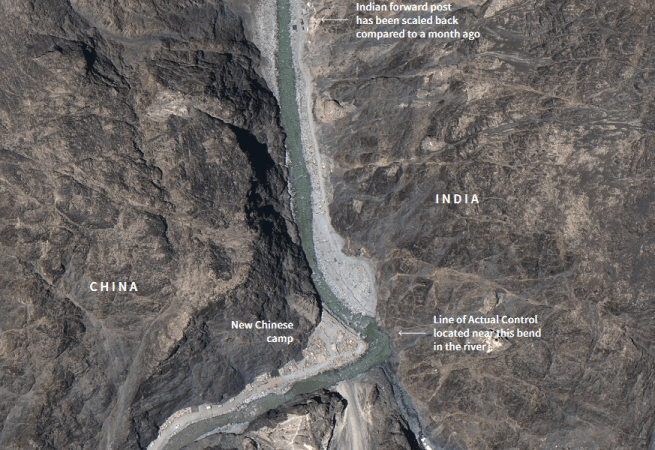Launching another diplomatic attack on India just a few months post the Galwan incursions, the Chinese government for the first time publicly put on record that it has a boundary dispute with Bhutan in the eastern sector, very close to Doklam where the Chinese and Indian militaries had a tense standoff in 2017.
![China's flag [Representational Image] China flag](https://data1.ibtimes.co.in/en/full/644987/china-flag.jpg?h=450&l=50&t=40)
In tweets that have since been deleted, Shen Shiwei, a senior producer with Chinese CGTN News, posted the images this morning of the village named Pangda, established 2 km within Bhutan's territory, in what he said was the Doklam area and later indicated the precise location of the settlement.
The move is particularly worrying for India as it refers to Beijing's another attempt to cut into Indian and Bhutanese territory. Not to forget, Bhutan's territorial integrity is also India's responsibility as the land-locked country maintains a limited armed force.


The Doklam standoff
The Doklam standoff had been the most serious face-off in decades between India and China before the confrontation in eastern Ladakh that began earlier this year and peaked in June with a clash that left 20 Indian soldiers dead and an unspecified number of Chinese casualties.
Since then, the nuclear-armed countries have sent in tens of thousands of troops on the rugged frontier between Ladakh and the Chinese-held Tibetan plateau, raising the risk of further confrontation even while looking for ways to de-escalate.
Though China might have denied publicly, it's not surprising if Beijing was opposed to the India-Bhutan boundary delimitation agreement, which was signed in 2006 -- more so because of Bhutan's borders with Arunachal Pradesh.

Following the latest event, experts have opined that using Bhutan to target India may turn out to be counterproductive for China as it may lose political capital in Bhutan which may is effective in facilitating closer diplomatic coordination between Thimphu and Delhi."
In 2018 July, vice foreign minister Kong Xuanyou led a rare high-level visit from China to Bhutan; he was accompanied by Luo Zhaohui, the then Chinese envoy to India. The Chinese foreign ministry statement released at the end of his visit said, "China highly values its traditionally friendly relations with Bhutan, and will as always respect Bhutan's independence, sovereignty and territorial integrity, respect the political system and development path chosen by Bhutan based on its own national conditions, and respect the independent foreign policy of peace upheld by Bhutan."
As per media reports, government sources, last week, informed that India and China have readied a three-phase plan for disengagement, however, there is no signature or agreement on the plan's implementation yet. No time period has been agreed upon within which to implement the plan; neither is the extent to which it will happen decided between the two sides.
However, one would be shocked to note that it's not only India but China also territorial disputes with 16 other neighbours, both on land and sea. This military presence in the region has particularly increased after the coronavirus pandemic began.

In July 2016, the Permanent Court of Arbitration at The Hague issued its ruling on a claim brought against China by the Philippines under the United Nations Convention on the Law of the Sea (UNCLOS), ruling in favour of the Philippines on almost every count. While China is a signatory to the treaty, which established the tribunal, it refuses to accept the court's authority.
Other instances
The Spratly Islands and the Paracel Islands in the South China Sea are the two primary examples of contentions in the sea. The first is a dispute between China, Taiwan, Malaysia, the Philippines, Vietnam and Brunei while the second is between China, Taiwan and Vietnam. China's sweeping claims of sovereignty is an evident marker of its political, security, and economic interests in the region.
















